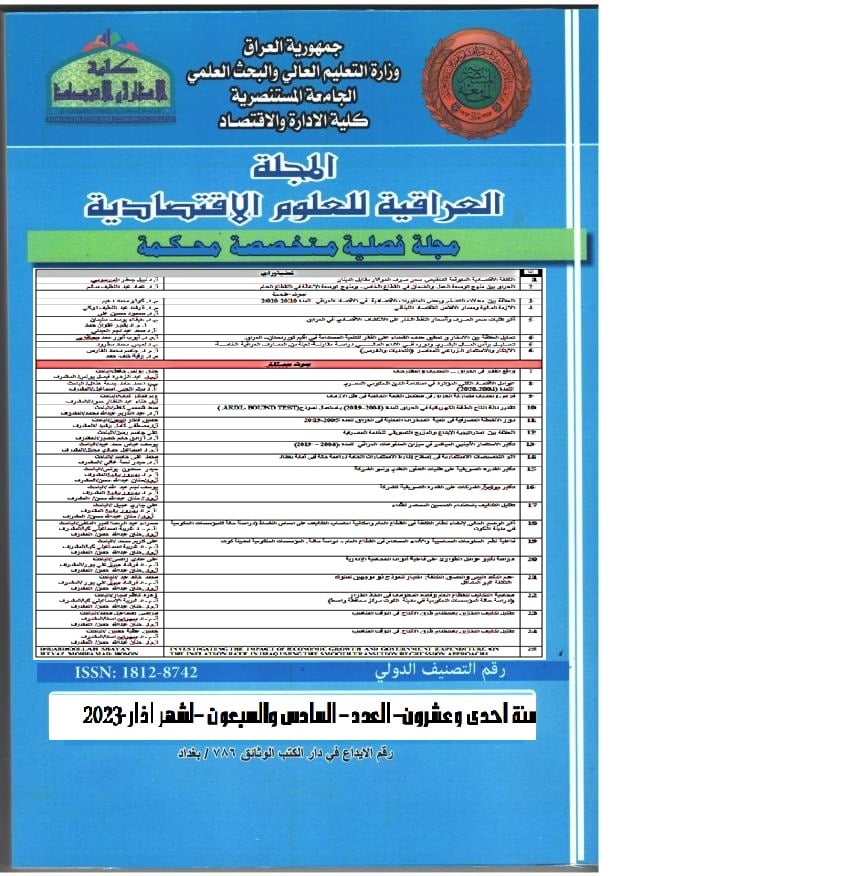Investigating the impact of economic growth and government expenditure on the inflation rate in Iraq using the smooth transition regression approach
الملخص
Inflation will have negative effects on the economy. Problems caused by inflation, on the one hand, reduce the purchasing power of consumers, and on the other hand, increase production costs. Therefore, it increases the final price of goods and services. The present study investigated the effect of Iraq’s economic growth and government expenditure on the country’s inflation rate from 2003 to 2020 using the Smooth Transition Regression (STR) approach. The STR model was constructed by using liquidity growth as the threshold variable with the transition threshold set to 4.96% and the transition speed set to 2.08%. Regression results showed that during the period of interest, Iraq’s economic growth and government expenditure growth have had different effects on the country’s inflation depending on whether liquidity growth has been low or high (low or high liquidity growth regime in the model). In the low liquidity growth regime, government expenditure growth has not been inflationary, but in the high liquidity growth regime, it has increased inflation by 0.06% (per percentage increase in government spending). In both regimes, economic growth has had a positive effect on inflation, increasing it by 0.15% in the low liquidity growth regime and by 0.23% in the high liquidity growth regime. Overall, the results show that Iraq’s inflation from 2003 to 2020 has been most greatly influenced by liquidity growth.






